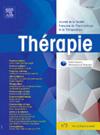[ISO 9001 认证:拉巴特伊本-西纳大学医院免疫学和细胞疗法实验室的经验]。
IF 1.8
4区 医学
Q3 PHARMACOLOGY & PHARMACY
引用次数: 0
摘要
医学分析实验室在医学诊断中发挥着至关重要的作用,其结果影响着高达70%的决定。这意味着实验室服务的质量是医疗质量的关键因素。然而,在摩洛哥,认证和认可还不是强制性的,只有2011年出版的《良好执行医学生物学分析指南》(GBEA)管理着实验室的组织。拉巴特伊本西纳大学医院(CHUIS)的输血和血液警戒服务(STSH)已经开始了ISO 9001:2015认证过程,目的是提高其绩效并满足其相关方。这一进程于2018年启动,分两个主要阶段进行。第一阶段包括遵守现行法规,而第二阶段涉及基于ISO 9001:2015标准的评估。按照戴明轮的逻辑,部门制定了质量方针,设定了目标,并开展了员工培训和意识活动。这些过程以及相关的风险和机会都已被识别和描述。文件系统,以及报告和处理不符合的系统,已经实施和非物质化。已经为每个过程定义了性能和活动指标。最后,顾客反馈系统已扩大到包括所有有关方面,从而允许评价他们的看法和确定需要改进的领域。尽管2019冠状病毒病在全球流行,但这项工作已成功将ISO 9001:2015纳入STSH的实践,并于2022年由认证机构宣布符合要求。本文章由计算机程序翻译,如有差异,请以英文原文为准。
Certification ISO 9001 : expérience du laboratoire d’immunologie et de thérapie cellulaire du CHU Ibn Sina, Rabat
Les laboratoires d’analyses médicales jouent un rôle essentiel dans le diagnostic médical, leurs résultats influencent jusqu’à 70 % des décisions. Cela signifie que la qualité des prestations du laboratoire est un facteur principal de la qualité des soins médicaux. Cependant, au Maroc la certification et l’accréditation ne sont pas encore obligatoires, seul le guide de bonne exécution des analyses de biologie médicale (GBEA) publié en 2011 régie l’organisation des laboratoires. Le service de transfusion sanguine et d’hémovigilance (STSH) du centre hospitalier universitaire Ibn Sina (CHUIS) de Rabat s’est engagé dans une démarche de certification ISO 9001V2015 pour but d’accroître ses performances et de satisfaire ses parties intéressées. Cette démarche lancée en 2018 s’est déroulée en deux phases principales. La première consistait à se conformer à la réglementation en vigueur, tandis que la seconde impliquait une évaluation par rapport au référentiel ISO 9001V2015. Conformément à la logique de la roue de Deming, le service a élaboré sa politique qualité, établi ses objectifs et a entrepris la formation et la sensibilisation du personnel. Les processus, ainsi que les risques et opportunités afférents, ont été identifiés et représentés. Le système documentaire, ainsi que le système de signalement et de traitement des non-conformités, ont été mis en œuvre et dématérialisés. Des indicateurs de performance et d’activité ont été définis pour chaque processus. Enfin, le système d’écoute client a été étendu à toutes les parties prenantes, permettant ainsi d’évaluer leur perception et de détecter les axes d’amélioration. Malgré la pandémie mondiale de COVID-19, ce travail a su intégrer avec succès la norme ISO 9001:2015 dans les pratiques du STSH en déclarant sa conformité en 2022 par un organisme certificateur.
Medical analysis laboratories play an essential role in medical diagnosis, with their results influencing up to 70% of decisions. This means that the quality of laboratory services is a key factor in the quality of medical care. However, certification and accreditation are not yet compulsory in Morocco, and only the Guide to the Good Execution of Medical Biology Analyses (GBEA) published in 2011 governs the organisation of laboratories. The Blood Transfusion and Hemovigilance Service (STSH) at the Ibn Sina University Hospital (CHUIS) in Rabat has embarked on an ISO 9001:2015 certification process, with the aim of improving its performance and satisfying its interested parties. This process, which was launched in 2018, was carried out in two main phases. The first phase consisted of complying with current regulations, while the second phase involved an evaluation based on the ISO 9001:2015 standard. In accordance with the logic of the Deming wheel, the department developed its quality policy, set its objectives, and undertook staff training and awareness activities. The processes, along with the associated risks and opportunities, have been identified and represented. The documentation system, as well as the system for reporting and handling non-conformities, has been implemented and dematerialised. Performance and activity indicators have been defined for each process. Finally, the customer feedback system has been expanded to include all interested parties, thus allowing for an evaluation of their perceptions and the identification of areas for improvement. Despite the global pandemic of COVID-19, this work has successfully integrated ISO 9001:2015 into STSH's practices, with compliance being declared by a certification body in 2022.
求助全文
通过发布文献求助,成功后即可免费获取论文全文。
去求助
来源期刊

Therapie
医学-药学
CiteScore
3.50
自引率
7.70%
发文量
132
审稿时长
57 days
期刊介绍:
Thérapie is a peer-reviewed journal devoted to Clinical Pharmacology, Therapeutics, Pharmacokinetics, Pharmacovigilance, Addictovigilance, Social Pharmacology, Pharmacoepidemiology, Pharmacoeconomics and Evidence-Based-Medicine. Thérapie publishes in French or in English original articles, general reviews, letters to the editor reporting original findings, correspondence relating to articles or letters published in the Journal, short articles, editorials on up-to-date topics, Pharmacovigilance or Addictovigilance reports that follow the French "guidelines" concerning good practice in pharmacovigilance publications. The journal also publishes thematic issues on topical subject.
The journal is indexed in the main international data bases and notably in: Biosis Previews/Biological Abstracts, Embase/Excerpta Medica, Medline/Index Medicus, Science Citation Index.
 求助内容:
求助内容: 应助结果提醒方式:
应助结果提醒方式:


